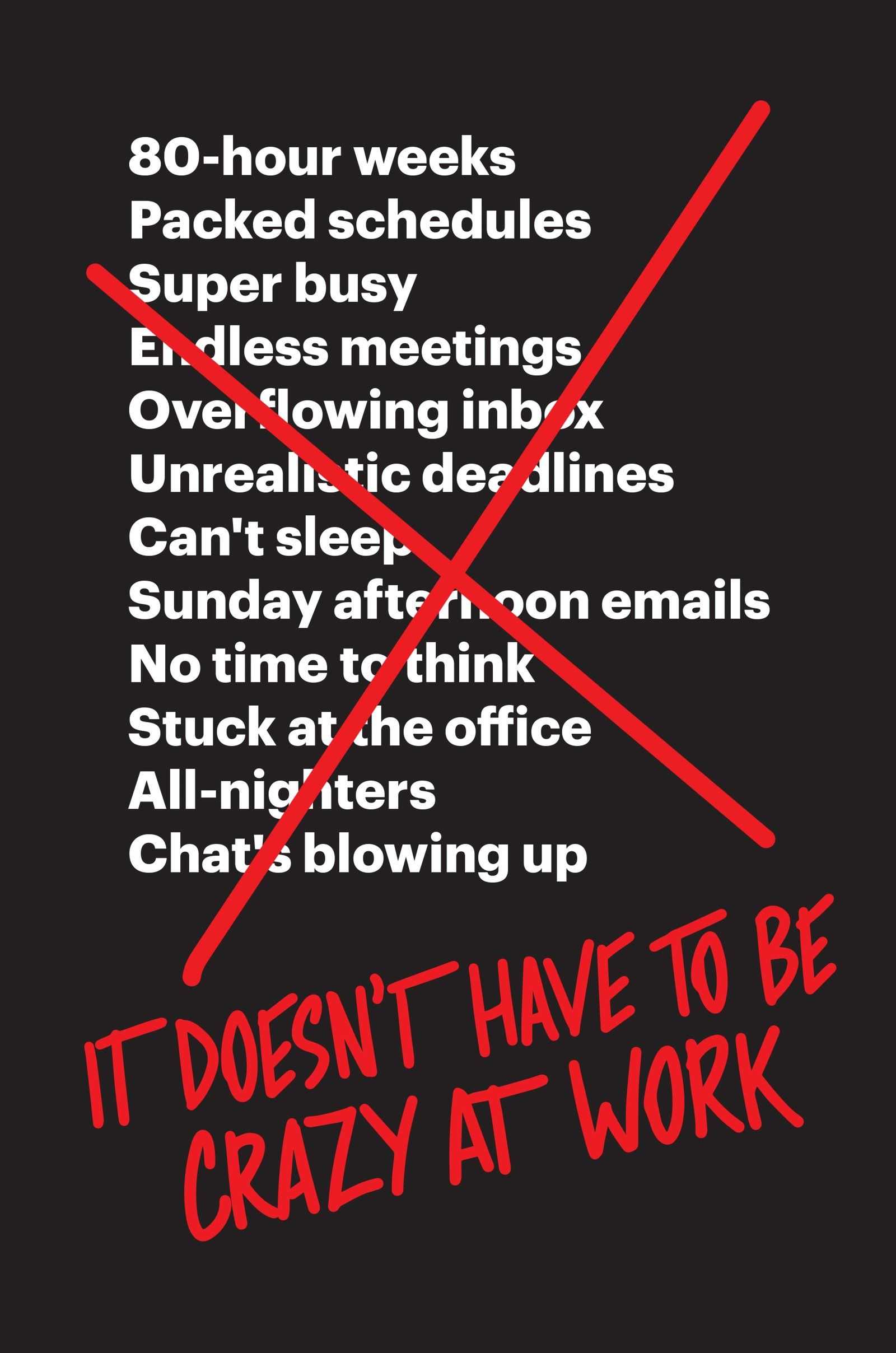27 Highlights
Comparison is the death of joy.
Mark Twain
The further away you are from something, the fuzzier it becomes. The future is a major abstraction, riddled with a million vibrating variables you can’t control. The best information you’ll ever have about a decision is at the moment of execution.
Taking someone’s time should be a pain in the ass. Taking many people’s time should be so cumbersome that most people won’t even bother to try it unless it’s REALLY IMPORTANT! Meetings should be a last resort, especially big ones.
It’s easy to excuse this game of calendar Tetris with “But it’s just an invitation!” But nobody ever declines an invitation in good conscience. No one wants to be seen as “difficult” or “inaccessible.” So they’ll let the blocks drop until their day is crushed and the game is over.
We don’t require anyone to broadcast their whereabouts or availability at Basecamp. No butts-in-seats requirement for people at the office, no virtual-status indicator when they’re working remotely.
“But how do you know if someone’s working if you can’t see them?” Same answer as this question: “How do you know if someone’s working if you can see them?” You don’t. The only way to know if work is getting done is by looking at the actual work. That’s the boss’s job. If they can’t do that job, they should find another one.
In almost every situation, the expectation of an immediate response is an unreasonable expectation. Yet with more and more real-time communication tools creeping into daily work—especially instant-messaging tools and group chat—the expectation of an immediate response has become the new normal. This is not progress.
The fact is that the higher you go in an organization, the less you’ll know what it’s really like. It might seem perverse, but the CEO is usually the last to know. With great power comes great ignorance.
Respect the work that you’ve never done before. Remind yourself that other people’s jobs aren’t so simple.
Sleep-deprived people aren’t just short on brains or creativity, they’re short on patience. Short on understanding. Short on tolerance. The smallest things become the biggest dramas. That hurts colleagues at work as much as it does the family at home. Being short on sleep turns the astute into assholes.
Don’t just take their word for it. Take their work for it.
We hired many of our best people not because of who they were but because of who they could become.
When it comes to chat, we have two primary rules of thumb: “Real-time sometimes, asynchronous most of the time” and “If it’s important, slow down.”
We don’t want reactions. We don’t want first impressions. We don’t want knee-jerks. We want considered feedback. Read it over. Read it twice, three times even. Sleep on it. Take your time to gather and present your thoughts — just like the person who pitched the original idea took their time to gather and present theirs. That’s how you go deep on an idea.
Normal comes on quick. First it starts as an outlier. Some behavior you don’t love, but tolerate. Then someone else follows suit, but either you miss it or you let it slide. Then people pile on—repeating what they’ve seen because no one stepped in to course correct. Then it’s too late. It’s become the culture. The new normal.
Culture isn’t what you intend it to be. It’s not what you hope or aspire for it to be. It’s what you do.
I disagree and commit all the time. We recently greenlit a particular Amazon Studios original. I told the team my view: debatable whether it would be interesting enough, complicated to produce, the business terms aren’t that good, and we have lots of other opportunities. They had a completely different opinion and wanted to go ahead. I wrote back right away with “I disagree and commit and hope it becomes the most watched thing we’ve ever made.” Consider how much slower this decision cycle would have been if the team had actually had to convince me rather than simply get my commitment.
Jeff Bezos
Sometimes we assume that someone has to like or dislike something. Often they just get used to something and that’s what they prefer.
Best practices imply that there’s a single answer to whatever question you’re facing. It implies that you really don’t have a choice in the matter. Resist the implication. You always have a choice.
Every best practice should come with a reminder to reconsider.
It’s good to sleep on something. You might well wake up the next day to see what was the world’s best idea yesterday doesn’t seem quite as important now. Taking a breather gives you perspective.
The problem with per-seat pricing is that it makes your biggest customers your best customers.
Real answers are only uncovered when someone’s motivated enough to buy your product and use it in their own natural environment—and of their own volition. Anything else is a simulation, and simulated situations give you simulated answers. Shipping real products gives you real answers.
You’ll often hear that people don’t like change, but that’s not quite right. People have no problem with change they asked for. What people don’t like is forced change — change they didn’t request on a timeline they didn’t choose.
For many customers, better doesn’t matter when comfort, consistency, and familiarity are higher up on their value chain.
Startups are easy, stayups are hard. Keeping the show running for the long term is a lot harder than walking onstage for the first time.
Jean-Louis Gassée, who used to run Apple France, describes this situation as the choice between two tokens. When you deal with people who have trouble, you can either choose to take the token that says “It’s no big deal” or the token that says “It’s the end of the world.” Whichever token you pick, they’ll take the other.
